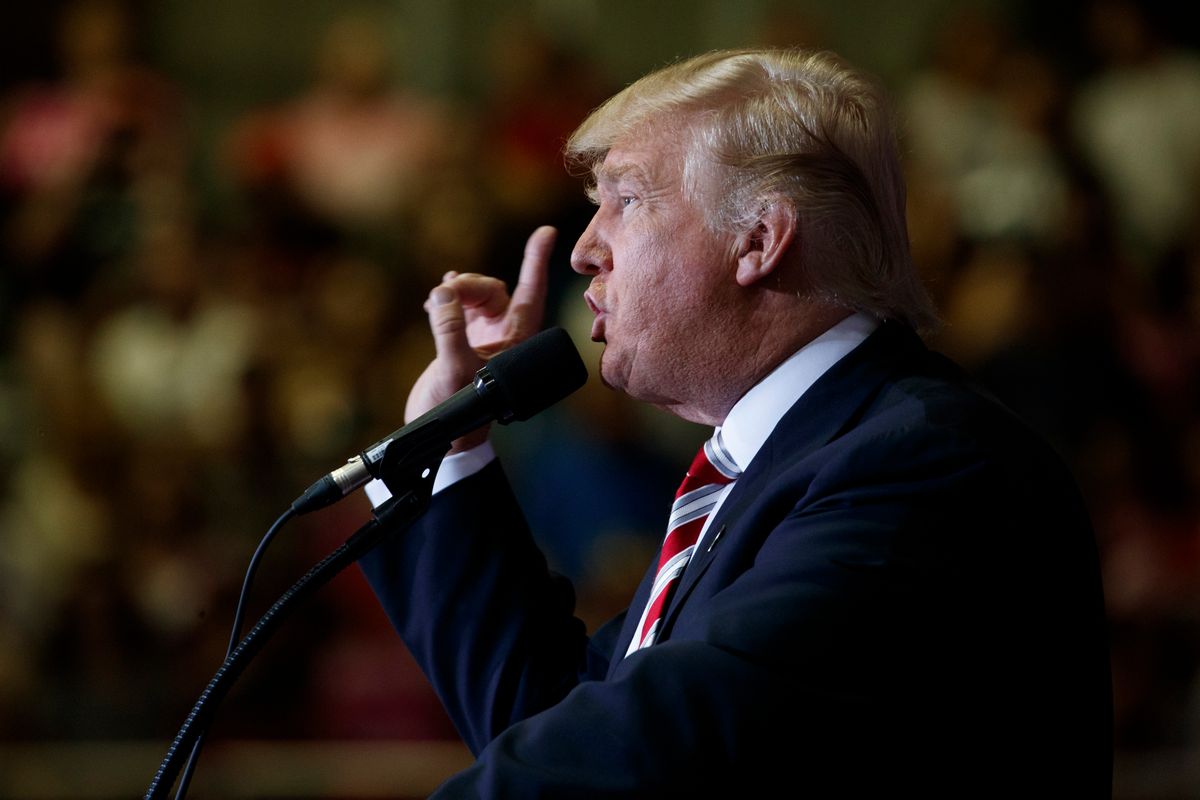Regardless of whether GOP presidential nominee Donald Trump wins on Tuesday, this election has already been a historic one — mainly within the history of the Republican Party, of course, but also by extension for America as well.
Here are the three main ways in which Trump's candidacy have broken historical precedent.
1. This is the first election since 1940 in which a major party nominated a presidential candidate without any governmental or military experience.
The last non-politician and non-military presidential nominee was Wendell Willkie, whom the Republicans nominated based on his strong record as a business executive. Although Willkie's candidacy was unusual in that he had never held elected office, the Republican Party has a long history of viewing business experience as a valued qualification for public office.
It's hardly a coincidence that George W. Bush was the first president to have an MBA or that Mitt Romney touted his business acumen as a main selling point. That said, Bush and Romney were both elected to other offices before running for president (as governors of Texas and Massachusetts, respectively), while Trump went directly from his business career to his presidential campaign.
If he wins, Trump will be the first president to be elected without a career stopover in politics or the military.
2. It is the first time a presidential candidate from either party has been explicitly anti-free trade since Herbert Hoover in 1932.
It may seem hard to believe now, but there once was a time when presidential candidates didn't dare speak out against free trade. Sure, some of the fringe-y candidates on the left or right might insinuate that trade deals like North American Free Trade Agreement and Central America Free Trade Agreement weren't all that great, but those guys never won their party's nomination.
The last presidential candidate — or for that matter president — to be openly anti-free trade was Herbert Hoover more than 80 years ago. Trump, by contrast, has been a consistent opponent of free trade since the 1980s, and along with Sen. Bernie Sanders has compelled Democratic presidential nominee Hillary Clinton to become more critical of impending trade deals like the Trans-Pacific Partnership.
3. This is the first time the Republican Party has nominated a candidate openly opposed by its establishment since 1964.
Until this year, the conventional wisdom was that Democratic presidential primaries were the unpredictable ones. Republicans, on the other hand, could be relied upon to coronate a candidate who had already received the party establishment's blessing. This axiom held from Richard Nixon's 1968 campaign straight through to Mitt Romney's 2012 effort but was obliterated in 2016.
Not only did the GOP nod wind up going to Trump, a man loathed by his party's establishment, but the closest runner-up was Sen. Ted Cruz of Texas, someone who many establishment Republicans held in equally low regard. The last time the party's leadership was so thoroughly repudiated, the candidate responsible for the rebuke — Arizona Sen. Barry Goldwater — wound up pushing his party to the far right, where it has remained ever since. Obviously, it remains to be seen whether Trump's campaign will have the same effect.
It's hard to overstate the significance of Trump's campaign breaking these precedents. For more than half a century, the Republican Party could be relied upon to nominate candidates who had either political or military experience, passed muster with the party establishment and took "safe" positions on issues like trade policy.
These constants limited the type of person who could plausibly run for president and made sure that Republican ideology and policy were shaped in a relatively stable way. If just one of these precedents had been broken in this year's election, that would have been an enormous development on its own.
Having three precedents broken in a single election, however, is nothing short of shocking.



Shares